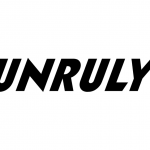Sue-Anne Lim is a nomad strategist and an independent management consultant
RECENT political event were obviously an incredible occasion for news publishers considering some of them had increased their circulation 3 to 4 times its usual size. Now that the new order has given media back their voice, the question is will they be able to sustain it? I have said many times that the migration of attention to online portals was only partially due to digitization.
A large part of it was because people were rejecting certain media because they didn’t trust its content. It is therefore imperative for media owners who are also in the publication or broadcasting field to really consider about building their branded opinions based on solid journalism and formidable expertise. Because it has been proven that the eyeballs will return when people trust what you have to say.
Now the question is, how do we stop surviving but instead, thrive in an era of media saturation? How do we effectively grow the bottom line? In this industry, there are two common revenue sources which are advertising and subscription or perhaps the third occasional one; events. This business has been an uphill battle because of content saturation and that audience attention is really a zero-sum game.
All media is obviously competing with all media in every shape and form – I can’t fully pay attention to a cooking show when I’m reading about fast cars, can I? The strength of the publisher is evidently in the content it creates and I find it strange that very few businesses truly leverage on this to create a new revenue opportunity. Once an article is posted or published, is that just it?
The life of that single post really depends on its ability to circulate around the internet. And obviously, the more similar articles there are floating in the world wide web, the shorter each lifespan. Specialist media especially publications on food, parenting, automotive, photography, architecture and et cetera should really consider consultancy as their third revenue pillar.
Why? Because after years and years of researches, opinions, connections, accumulation of profiles and expertise, knowing what works and what doesn’t, this knowledge remains siloed and locked away in the recesses of the editorial’s mind, buried under the avalanche of daily articles. Has anyone in the business tried to collate the databank whether numerical or observation, to make sense out of it? Knowledge without application is just information. And that is what the publishing business is – the business of information. So, how about we reframe that and think about the business of knowledge application instead? How can we repurpose content and turn them into actionable insights?
If publishers are truly savvy and claimed experts in their fields then I reckon they should be the ultimate go-to resource for brands and businesses within the same field or especially those intending to break into the vertical. Who in the publishing business is the applicator of all these years of accumulated knowledge and network? An F&B editorial could consult developers on the type of culinary outlets that could be commercially viable and fit the profile of a new cultural centre. A fashionable mom’s portal could be the advisor to brands in creating new sleek baby products.
Because who else knows their audience best? Whether to have better food or better products, my point is, if all a publisher does is just writing content then I think the future is indeed bleak. Feed the knowledge, not just the eyeballs. By rising beyond the traditional editorial role and becoming an expert in a particular vertical, it can be powerful.
Publishers can add a lot more value to not just the business vertical but also raise the standards of consumption for their own audience. Honestly, in a country where the most disparate people will unite to protect the sovereignty of ‘rendang’, we do not seem to have any strong leading media in the culinary field even though many had tried and there is an infinite list of directories and blog reviews that don’t really surmount to any ‘thought leadership’. Imagine being the respected culinary voice that could connect businesses, introduce resources and share best practices; the application is limitless.
And the best part is? You could put a fair price to it.
So, think about it. If you own a magazine, whether it’s online or offline – how strong is your brand? What kind of expertise can you offer other marketers that no one can? Can your voice move markets? If you can answer that, then you are ready to move into the next phase of publishing. Stop competing with internet opinion leaders who are not in the same experience league as you. You are much bigger than that.
Welcome to the business of consultancy.

Sue-Ann Lim
MARKETING Magazine is not responsible for the content of external sites.
An afternoon of conversations we never had, with leaders most of you never met.
Discover what’s possible from those who made it possible. Plus a preview of The HAM Agency Rankings REPORT 2024.
Limited seats: [email protected]
BOOK SEATS NOW









